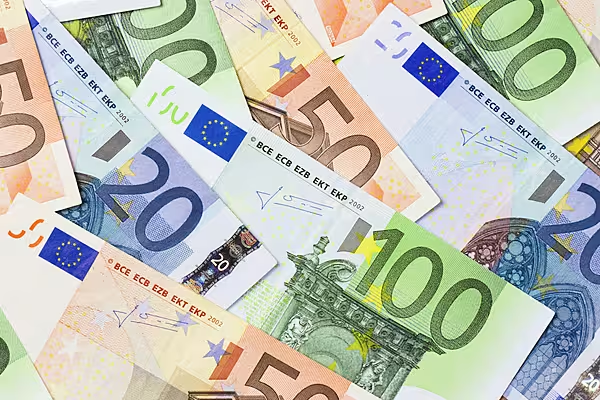After the pound’s longest stretch of weekly declines in more than three years against the euro, traders will get further guidance from a slew of economic data and the Bank of England’s monetary-policy meeting this week.
Sterling is sliding as signs of an economic slowdown locally, and globally, prompt money-market traders to rule out an interest-rate increase by the BOE any time soon. On Friday the British currency completed its longest losing streak versus the dollar since the depths of the global financial crisis in 2008. The central bank’s Sept. 10 policy announcement will be preceded by reports earlier in the week on housing, retail sales and industrial production.
“There is already built into sterling the expectation of some dovish news,” said Jane Foley, a senior currency strategist at Rabobank International in London. “That should protect” the pound from “having a significant fallout,” she said.
The pound depreciated 0.7 per cent last week to 73.17 pence per euro as of 5 p.m. London time on Friday. That means the U.K. currency is already weaker than the 71 pence predicted for the end of this quarter in a June 30 Bloomberg survey. Its five-week slide is the longest versus the euro since the period ended July 12, 2013. Sterling dropped for a ninth day on Friday against the dollar, extending its weekly decline to 1.3 per cent, to $1.5193.
BOE Decision
BOE policy makers are forecast to leave the benchmark interest rate at a record-low 0.5 per cent, where it has remained for more than six years, according to a Bloomberg survey of economists. Minutes of the meeting, released at the same time, will also show how the nine officials voted.
At last month’s Monetary Policy Committee meeting, only Ian McCafferty voted to increase rates, minutes released on Aug. 6 showed.
Forward contracts based on the sterling overnight index average, or Sonia, suggest that a full 25 basis-point increase won’t come until beyond October 2016.
Sterling has weakened against all its Group-of-10 peers except the Australian and New Zealand dollars in the past month, a turnaround from the second quarter when it strengthened versus all of them.
The possibility of the BOE keeping rates unchanged for longer was also reflected in gains by U.K. government bonds, with benchmark 10-year gilt yields falling 14 basis points, or 0.14 percentage point, this week to 1.83 per cent. The 2 per cent bond due in September 2025 rose 1.245, or 12.45 pounds per 1,000-pound face amount, to 101.585.
News by Bloomberg, edited by ESM. To subscribe to ESM: The European Supermarket Magazine, click here.














